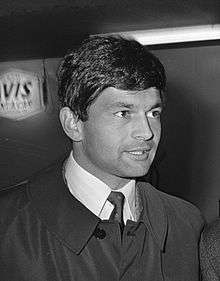PFC Levski Sofia
Levski Sofia (Bulgarian: Левски София) is a professional association football club based in Sofia, Bulgaria, ranked 1st in the All-time Bulgarian League table. The team competes in the First League, the top division of the Bulgarian football league system. The club was founded on 24 May 1914, as a football department of Sport Club Levski by a group of students and is named after Vasil Levski, a Bulgarian revolutionary renowned as the national hero of the country.
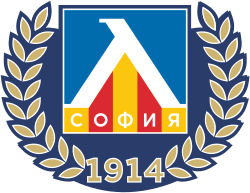 | ||||
| Full name | Professional Football Club Levski Sofia | |||
|---|---|---|---|---|
| Nickname(s) | Сините (The Blues) Отбора на народа (The Team of the People) Синята лавина (The Blue Avalanche) | |||
| Short name | LEV | |||
| Founded | 24 May 1914 | |||
| Ground | Vivacom Arena - Georgi Asparuhov | |||
| Capacity | 25,000 | |||
| Shareholders | Nasko Sirakov (51.6%) Konstantin Papazov (35%) Blue Bulgaria Trust (10%) Minority shareholders (3.4%) | |||
| Head coach | Georgi Todorov | |||
| League | efbet League | |||
| 2019–20 | First League, 4th | |||
| Website | Club website | |||
|
| ||||
Levski have participated in more seasons of the Bulgarian football championship than any other team and are the only Bulgarian team to have never been relegated. They have won 26 A Group titles, 25 Bulgarian Cups and 3 Super Cups, which include a record 13 Doubles and 4 Trebles. Levski have reached five quarterfinals in UEFA competitions, three international finals, and in 2006, they became the first Bulgarian club to enter the group stages of the UEFA Champions League.
The team's regular kit colour is all-blue. Levski's home ground is the Vivacom Arena - Georgi Asparuhov in Sofia, which has a capacity of 25,000 spectators. The club's biggest rivals are CSKA Sofia, and matches between the two capital sides are commonly referred to as The Eternal Derby of Bulgaria. Levski is also a regular member of the European Club Association and the European Multisport Club Association.
History
Sport Club Levski (1914–1969)
[1] Sport Club Levski was founded in 1911 by a group of students at the Second Male High School in Sofia, with football as the major sport practiced. The club's name was chosen in honour of the Bulgarian revolutionary Vasil Levski, and the club was officially registered on 24 May 1914.
In 1914, Levski lost its first official match against FC 13 Sofia 0–2. Between 1914–20, football wasn't a popular sport in Bulgaria, and no additional information about the club exists. In the summer of 1921, the Sofia Sports League was established, which united 10 clubs from Sofia and marked the beginning of organized football competitions in the city. The Blues won the first match in the championship for the season 1921–22, held on 18 September 1921, against Athletic Sofia with the score of 3–1. Levski captured first place in the league in 1923 after a dramatic 3–2 win over bitter rival Slavia Sofia and successfully defended the title the following season.
The first National Championship was held in 1924 with Levski representing Sofia. The team went on to win the title in 1933, 1937 and 1942, and established itself as the most popular football club in Bulgaria. Levski also became the holder for all times of the Ulpia Serdica Cup by virtue of winning it for the third time in a row in 1933. In 1929, Levski became the first semi-professional football club in Bulgaria, after 12 players staged a boycott of the team in demand of financial remuneration and insurance benefits. The same year Levski met its first international opponents, losing to Gallipoli Istanbul 0–1 and winning against Kuban Istanbul 6–0.
After World War II, Levski became one of the two top clubs in Bulgaria. After winning the championship in 1946, 1947, 1949 (as part of Unbeaten Double making Levski Sofia the only Bulgarian team with such an achievement), 1950 and 1953 Levski would not capture the domestic title again until the mid-1960s. In 1949, the authorities changed the club's name to Dinamo following the Soviet traditions, but after the destalinization of Bulgaria, it was reverted in 1957. The 1960s were marked with return to success both on the domestic and on the international stage. Levski's academy would become the most successful in national youth competitions for the years to come, and the results were first seen in the likes of Georgi Asparuhov, Georgi Sokolov, Biser Mihaylov, Kiril Ivkov, Ivan Vutsov, Stefan Aladzhov and Aleksandar Kostov, assisted by experienced veterans like Stefan Abadzhiev, Dimo Pechenikov and Hristo Iliev, who celebrated winning the championship in 1965, 1968 and 1970, and the 7–2 triumph over new bitter rival CSKA in 1968. The tie against Benfica in the European Cup in 1965 remained memorable for the Eusébio versus Georgi Asparuhov clash, and the recognition that the Portuguese great gave to his Bulgarian counterpart.
Levski-Spartak (1969–1985)
In January 1969 Levski was merged with Spartak Sofia by BCP, and put under the auspice of the Bulgarian Interior Ministry. The name of the club was once again changed, this time to Levski-Spartak.
A new crop of youngsters in the likes of Kiril Milanov, Dobromir Zhechev, Pavel Panov, Yordan Yordanov, Stefan Staykov, Tomas Lafchis, Todor Barzov, Voyn Voynov, Georgi Tsvetkov, Plamen Nikolov, and Rusi Gochev not only found their place in the first team, but brought new titles in 1974, 1977, 1979, 1984 and 1985. On the international stage the quarter-final appearances in the Cup Winners Cup in 1970 (eliminating Swiss Cup winners FC St. Gallen and beat future European CWC Runners-up Gornik Zabrze 3–2 in the 1st leg of the quarterfinal) and 1977 (eliminating Portugal Cup winners Boavista FC and beat 1975–76 Copa del Rey holders Atlético Madrid 2–1 in the 1st leg of the quarterfinal, after which Kiril Milanov became the Top goalscorer of the tournament with 13 goals), and in the UEFA Cup in 1976 (eliminating 1974–75 Turkish championship Bronze medalists Eskişehirspor 7–1 on aggregate, 1974–75 German Cup Finalist MSV Duisburg, European hegemon Ajax Amsterdam, before played a historic quarterfinal with Barcelona). In 1977–78 European Cup The Blues knocked out Polish champions Śląsk Wrocław after a 3–0 win in Sofia. In 1978–79 UEFA Cup season Levski eliminated Greek club Olympiacos FC and made a 1–1 draw with the Italian colos AC Milan in the next round, and in 1980–81 UEFA Cup The Blue Avalanche eliminated one of the top European clubs Dynamo Kyiv. Levski has also achieved the milestone of being the only East European team to have scored five goals in a single UEFA competitions match against FC Barcelona [3][4] and the only Bulgarian club to eliminate a German champion - VfB Stuttgart in 1984–85 European Cup.
Vitosha Sofia (1985–1989)
The name of the team was changed to Vitosha by the authorities following the disruptions during and after the Bulgarian Cup final in 1985. The game ran on high emotions fuelled by the streak of consecutive victories of Levski over CSKA in the 2 years prior to the game (though CSKA won the Bulgarian Cup game 2–1). The controversial decisions of the referee led to confrontations both on the field and on the stands. By decree of the Central Committee of the Bulgarian Communist Party some of the leading players both of the Blues and the Reds were suspended from the sport for life. The championship title of the club for 1985 was suspended. However, the suspensions were lifted shortly after. Other Bulgarian Cup and national league titles were won in 1986 and 1988 respectively. The fourth European quarterfinal came in 1987, when the Sofia's Blue knocked out Danish Cup winners Boldklubben 1903 and 1985–86 Yugoslav Cup holders FK Velež Mostar, before lose to 1985–86 Copa del Rey champions Real Zaragoza.
Levski Sofia (1989–2009)
After the 1989–90 season, the club regained its original name. The team composed of the newcomers Plamen Nikolov, Petar Hubchev, Tsanko Tsvetanov, Emil Kremenliev, Zlatko Yankov, Georgi Slavchev, Ilian Iliev, Daniel Borimirov, Stanimir Stoilov and Velko Yotov and the return of the veterans Plamen Getov, Nikolay Todorov and Nasko Sirakov, dictated the game in the domestic championship by winning the title in 1993, 1994 and 1995. Memorable wins by big margins over challengers Lokomotiv Sofia – 8–0, CSKA – 7–1 and Botev Plovdiv – 6–1, clearly demonstrated Levski's complete superiority. Home games in European Competitions against Rangers and Werder Bremen turned into true holidays for supporters. Levski contributed with the most players – 9 (Petar Hubchev, Tsanko Tsvetanov, Emil Kremenliev, Zlatko Yankov, Nasko Sirakov, Plamen Nikolov, Petar Aleksandrov and Daniel Borimirov) to the Bulgaria national football team that ended on fourth place in the unforgettable American summer of the World Cup 1994.
Another relatively successful period lasted until 2005. Then the young new manager and former player Stanimir Stoilov organized a team of Levski's academy products Zhivko Milanov, Milan Koprivarov and Valeri Domovchiyski, the experienced Elin Topuzakov, Georgi Petkov, Stanislav Angelov and Dimitar Telkiyski, the fans' favorites Hristo Yovov, Daniel Borimirov and Georgi Ivanov, who came back after spending time abroad, reached the quarter-final stage of the UEFA Cup, knocking out 2004–05 Coupe de France champions AJ Auxerre, wins against Olympique de Marseille, Dinamo București and finishing ahead of the reigning title holder CSKA Moscow in the group stage, triumphing over Champions League participants Artmedia Bratislava and Udinese Calcio, before being knocked out by Schalke 04 in a controversial tie.
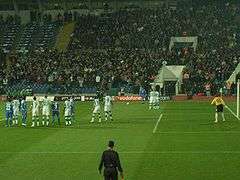
Levski, as the champions of Bulgaria, started their UEFA Champions League 2006–07 participation from the second qualiftying round, where they eliminated Georgian champions Sioni Bolnisi, defeating them 2–0 both home and away. In the third round, Levski faced Italian team Chievo Verona who are taking part in the tournament because of other clubs' sanctions as part of the 2006 Serie A matchfixing scandal. Levski eliminated Chievo after a decisive 2–0 win in Sofia and a secure 2–2 draw on Italian soil, and becoming the first Bulgarian club to ever reach the group stage of the UEFA Champions League.[5] There they faced last year's winners FC Barcelona from Spain, English champions Chelsea and German powerhouse Werder Bremen.[6]
Levski earned a spot in the UEFA Champions League 2008–09 after domestic champion CSKA Sofia failed to secure a UEFA license because of numerous debts to creditors.[7] Levski lost to BATE Borisov of Belarus in the third qualifying round.
Levski Sofia (2009–present)
During 2009–10 season, Levski's team started their European campaign with 9–0 (on aggregate) in the second Qualifying round of Champions League against UE Sant Julià. On the next round, Levski Sofia faced FK Baku. The blues eliminated the team from Azerbaijan with 2–0 (on aggregate). In the play-off round Levski was eliminated by Debreceni VSC with 4–1 (on aggregate). However, Levski qualified for UEFA Europa League. In the group stage, Levski faced Villarreal CF, Lazio and Red Bull Salzburg. Levski achieved only one win and 5 losses. Levski took the win against Lazio, after Hristo Yovov scored the winning goal in the match. The match was played at Stadio Olimpico.
Levski started the 2010–11 season with a match against Dundalk – a second qualifying round for Europa League. Levski won the first match and the result was 6:0.[8] In the return leg at Oriel Park, a confident Levski beat Dundalk FC 2–0 with two first half goals from Garra Dembele, the first on 4 mins and the second 10 mins before half-time. In the next round Levski played against Kalmar FF. The first match ended 1–1 in Sweden. In the return leg in Sofia Levski won 5–2. In between The Blues defeated their archrival CSKA Sofia in the Eternal derby of Bulgarian football with 1–0. Their next match in the Europa League saw them play AIK Fotboll, from Stockholm, Sweden. The first match ended with a draw, 0–0 and after the game AIK-hooligans attacked the Levski players and staff. The second match ended in a 2–1 home win for Levski. Goals scored by Daniel Mladenov and Garra Dembélé put Levski in Europa League group stage. Levski was drawn in Group C, facing Gent, Lille and Sporting CP. The first match was against Gent. Levski won the match in a 3–2 home win. The winning goal was scored by Serginho Greene. With this win Levski recorded 8 games in-a-row without losing in European competitions. After that Levski lost catastrophically from Sporting CP with 5–0. Followed by another loss against Lille. In Sofia Levski played very well against Lille and was leading 2–1 until Ivo Ivanov scored an own goal to make it 2–2. In the last match of the Group C, Levski take a win against Sporting CP with 1–0, the winning goal was scored by Daniel Mladenov.
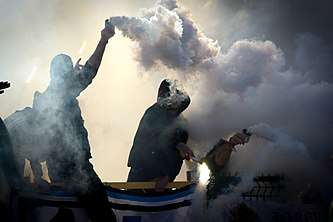
In the following 2011–12 season in the Third Qualifying Round of the Europa League, Levski were surprisingly eliminated by Spartak Trnava of Slovakia, following a late-minute 2–1 win in Sofia, and a loss of the same scoreline in Trnava. The penalty shoot-out cost Levski a place in the Play-off round. This caused an upset with the fans and players, the team barely clinching the fourth position at the winter break in the "A" PFG. Albeit only three points from the leaders Ludogoretz, the acting manager Georgi Ivanov was sacked from the position, but remained in the club as a sporting director. Nikolay Kostov was appointed as the new manager of the club, giving the supporters a sense of optimism, which, however faded after a cup knock-out in the hands of Lokomotiv Plovdiv and a surprise loss at home to Minyor Pernik. Kostov shockingly handed in his resignation, leaving the managerial post once again vacant. Sporting Director Georgi Ivanov once again stepped up to help his club, and accepted being manager until the summer break, when a new one will be appointed.
During the summer of 2012 ex-player Ilian Iliev was appointed as the new manager of Levski Sofia. Under his management the club was shockingly knocked out from the Europa League by Bosnian side FK Sarajevo. Iliev led the team to 13 victories in A PFG and to the semi-finals of the Bulgarian Cup after eliminating Cherno More Varna and Litex Lovech on the away goal rule. Iliev however was fired after a 1–1 away draw against Pirin Gotse Delchev. Assistant coach Nikolay Mitov took in charge the team until the end of the season. Under his management Levski won the derby clashes against Litex, CSKA and Ludogorets but failed to win the title after a surprising 1–1 home draw against Slavia Sofia. Levski also reached their first Bulgarian Cup final since 2007 but lost on penalties against Beroe Stara Zagora. Despite the missed opportunity of winning a trophy Mitov's contract was renewed for the 2013–14 season. However, the team made another disappointing performance in Europa League, being eliminated by Kazakh side Irtysh Pavlodar. This resulted the resignation of Nikolay Mitov as manager.
In July 2013 Slaviša Jokanović was appointed as the new manager of the team. Despite losing only 2 matches in 12 games Jokanovic was released in October 2013. Ivaylo Petev was announced as his successor but during his introduction a few Levski supporters interrupted it and threw him away, stating that they would not accept his appointment.[9] On the next day Petev refused to take charge of the team and Antoni Zdravkov was named as the new manager. Under his reign the team suffered a heavy 0–3 loss against rivals CSKA, but managed to knock them out from the Bulgarian Cup in December 2013 after penalties. Due to the difficult financial situation during the winter break key players such as Antonio Vutov and Garry Rodrigues were sold to Udinese and Elche respectively. This reflected on the team's performance and Levski finished 5th and got knocked out at the Quarterfinals of the Bulgarian Cup by Botev Plovdiv. Antoni Zdravkov was sacked in March 2014 and club legend Elin Topuzakov took charge as a caretaker until the end of season. For the first time since 1990–91 the club did not participate in European competitions.
On 23 May the club supporters organized a friendly game against Lazio marking the 100th anniversary of the club. Club icons like Georgi Ivanov, Dimitar Ivankov, Aleksandar Aleksandrov, Hristo Yovov, Elin Topuzakov and many other ex-players and celebrities took participation in both the friendly game and with money grants for the celebrations around the event.[10] On 24 May 2014 Levski marked 100 years since its founding.[11] Despite the difficult recent years, Levski Sofia is still the only Bulgarian club, who in the past more than 30 years has reached a European 1/4 final (2006) and a Champions League 1/8 final (1994).
Honours
| Type | Competition | Achievements | Seasons |
|---|---|---|---|
| Domestic | Bulgarian First League[12][13] | 26 titles | 1933, 1937, 1942, 1946, 1947, 1948–49, 1950, 1953, 1964–65, 1967–68, 1969–70, 1973–74, 1976–77, 1978–79, 1983–84, 1984–85, 1987–88, 1992–93, 1993–94, 1994–95, 1999–2000, 2000–01, 2001–02, 2005–06, 2006–07, 2008–09 |
| Bulgarian Cup [12][13][14] | 25 titles (record) | 1942, 1946, 1947, 1949, 1950, 1956, 1957, 1958–59, 1966–67, 1969–70, 1970–71, 1975–76, 1976–77, 1978–79, 1983–84, 1985–86, 1990–91, 1991–92, 1993–94, 1997–98, 1999–2000, 2001–02, 2002–03, 2004–05, 2006–07 | |
| Regional | Sofia Championship [12][13] | 11 titles (record) | 1922–23, 1923–24, 1924–25, 1928–29, 1932–33, 1936–37, 1941–42, 1942–43, 1944–45, 1945–46, 1947–48 |
| Domestic | Tsar's Cup / Cup of the Soviet Army / Cup of Bulgaria [12][13] | 6 titles (record) | 1933, 1937, 1981–82, 1983–84, 1986–87, 1987–88 |
| Ulpia Serdika Cup [12][13][14] | 4 titles (record) | 1926, 1930, 1931, 1932 | |
| Bulgarian Supercup [12][13] | 3 titles | 2005, 2007, 2009 | |
| Doubles | The Double | 13 times (record) | 1942, 1946, 1947, 1948–49, 1949–50, 1969–70, 1976–77, 1978–79, 1983–84, 1993–94, 1999–00, 2001–02, 2006–07 |
| Trebles | The Treble | 4 times (record) | 1941–42, 1945–46, 1983–84, 2006–07 |
| International | UEFA Europa League | 5 times
1/4 finals |
1969–70, 1975–76, 1976–77, 1986–87, 2005–06 |
| Balkans Cup [12][13] | 2 times Runners up | 1960–61, 1961–63 | |
| Intertoto Cup Ernst Thommen | 1 time Runners up | 1981 |
European record
Including 2019–20 season.
| Competition | S | P | W | D | L | GF | GA | GD |
|---|---|---|---|---|---|---|---|---|
| UEFA Champions League / European Cup | 15 | 58 | 15 | 14 | 29 | 74 | 82 | – 8 |
| UEFA Cup Winners' Cup / European Cup Winners' Cup | 11 | 36 | 14 | 5 | 17 | 70 | 55 | + 15 |
| UEFA Europa League / UEFA Cup | 26 | 112 | 41 | 25 | 46 | 144 | 150 | – 6 |
| UEFA Intertoto Cup | 1 | 6 | 2 | 2 | 2 | 12 | 11 | + 1 |
| Balkans Cup | 3 | 23 | 8 | 8 | 7 | 35 | 24 | + 11 |
| Mitropa Cup | 1 | 2 | 1 | 0 | 1 | 1 | 5 | – 4 |
| Intertoto Cup Ernst Thommen | 1 | 4 | 3 | 0 | 1 | 12 | 5 | + 7 |
| Total | 58 | 241 | 84 | 54 | 103 | 348 | 332 | + 16 |
Recent seasons
League positions

| Season | Position | M | W | D | L | G.D. | P | Bulgarian Cup | Bulgarian Super Cup | UEFA Champions League | UEFA Europa League | Notes |
|---|---|---|---|---|---|---|---|---|---|---|---|---|
| 2010–11 | 2 | 30 | 23 | 3 | 4 | 67:24 | 72 | Quarter-finals | Did not participate | Did not participate | Group Stage | |
| 2011–12 | 3 | 30 | 20 | 2 | 8 | 61:28 | 62 | Quarter-finals | Did not participate | Did not participate | Third qualifying round | |
| 2012–13 | 2 | 30 | 22 | 5 | 3 | 59:20 | 71 | Finalist | Did not participate | Did not participate | Second qualifying round | |
| 2013–14 | 5 | 38 | 19 | 5 | 14 | 59:39 | 62 | Quarter-finals | Did not participate | Did not participate | First qualifying round | |
| 2014–15 | 7 | 32 | 17 | 5 | 10 | 66:33 | 56 | Finalist | Did not participate | Did not participate | Did not participate | |
| 2015–16 | 2 | 32 | 16 | 8 | 8 | 36:18 | 56 | Quarter-finals | Did not participate | Did not participate | Did not participate | |
| 2016–17 | 3 | 36 | 18 | 9 | 9 | 50:31 | 63 | Round of 16 | Did not participate | Did not participate | Second qualifying round | |
| 2017–18 | 3 | 36 | 18 | 10 | 8 | 55:27 | 64 | Finalist | Did not participate | Did not participate | Second qualifying round | |
| 2018–19 | 3 | 36 | 20 | 6 | 10 | 64:37 | 66 | Round of 16 | Did not participate | Did not participate | First qualifying round | |
| 2019–20 | 4 | 31 | 15 | 8 | 8 | 50:30 | 53 | Semi-finals | Did not participate | Did not participate | Second qualifying round | |
| 2020–21 | TBA | 31 | TBA | TBA | TBA | TBA | TBA | TBA | Did not participate | Did not participate | Did not participate |
Club symbols
Names and crests
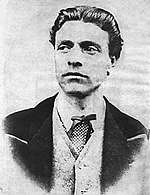
The first club crest was designed by Mincho Kachulev in 1922. Initially in the size of a square with a blue background, it was intentionally written in a stylized letter "Л" (Bulgarian letter "L"; shortened for Levski). The inner space of the letter was filled vertically equally in yellow and red colours. In a later period of time, the Cyrillic letters "С" (Sport) and "К" (club) were added at the top of the square, while the bottom side was inscribed with the name "Sofia". This badge was used by the club until 1949, when it was renamed to Dinamo.
From 1949 to 1956, the emblem of the club was an irregular hexagon filled with vertical red, white, blue and yellow colours, with an inscribed handwritten Cyrillic letter "Д", alongside a five-pointed red star above it and the word "Sofia" underneath. From 1957 to 1968 the original logo of the club was restored, however the letters C" and "К" were replaced with "Ф" (Athletic) and "Д" (union).
After the merger with Spartak Sofia in 1969, the club crest has been a shield in blue and white with a horizontal red bar above. The shield spawned the letters "Л" and "C", an abbreviation of the new name Levski-Spartak. The football club used this crest until 1985, when it was renamed Vitosha. Vitosha's crest was in the form of a stylized letter "C" surrounding the football in the upper curve of the letter, coloured in blue and white.
In January 1990, the club restored its original name and original logo, and the letters "C" and "K" in the upper corner of the blue square were replaced with the initials "Ф" (football) and "K" (club). However, due to legal issues with the ownership of the rights to the historic crest, the club was forced to change it in 1998, when a brand new shield logo was introduced, entirely in blue. At its centre, an inscription of the letter "Л" was introduced, alongside the year of establishment – 1914. The dome of the shield was labelled "PFC Levski".
After winning the legal dispute for the rights to the historic emblem in 2006, the club decided to use the two different logos simultaneously for a brief period of time. Later that year, the shield crest was completely removed and the classic square emblem has been used since.
Players
First team
As of 6 August 2020 Note: Flags indicate national team as defined under FIFA eligibility rules. Players may hold more than one non-FIFA nationality.
|
|
For recent transfers, see Transfers summer 2020.
Out on loan
Note: Flags indicate national team as defined under FIFA eligibility rules. Players may hold more than one non-FIFA nationality.
|
|
Foreign players
Up to five non-EU nationals can be registered and given a squad number for the first team in the Bulgarian First League however only three can be used during a match day. Those non-EU nationals with European ancestry can claim citizenship from the nation their ancestors came from. If a player does not have European ancestry he can claim Bulgarian citizenship after playing in Bulgaria for 5 years.
|
EU Nationals |
EU Nationals (Dual citizenship)
|
Non-EU Nationals |
Note: For a complete list of Levski Sofia players, see Category:PFC Levski Sofia players.
Sponsors and Ownership
|
|
|
Recently, due to changes in the marketing programme and club share acquisitions and restructuring, Levski Sofia signed a contract with the largest telecommunications company in Bulgaria, Vivacom, which joined the government body of the club by acquiring a major stake. It ran until early 2019 when club ownership changed. Other Bulgarian companies such as Gradus Ltd., Prime Sped Ltd., Bul Ins insurance company, Devin Ltd. (mineral water) and Moto-Pfohe (the Bulgarian representative of Ford Motor Company) are also under sponsorship contracts with the club.
Club officials
Board of Directors
Last updated: August 2020
|
First Team
Last updated: July 2019
|
Youth Academy
Last updated: January 11, 2020
| |||||||||||||||||||||||||||||||||||||||||||||||||||||||||||||||||||||||||||||||||||||||
Stadium

Initially, the club did not possess a field of its own and training was held on an empty space called The Hillock (Могилката/Mogilkata), where the National Palace of Culture was built later. In 1924, the Sofia Municipality provided the club with the rights to an empty field on what were then the outskirts of the city, and a decade later the stadium named Levski Field was finally completed. It provided for 10,000 spectators and was regarded as the finest sport facility in the city.
In 1949, the stadium was nationalized and later the Vasil Levski National Stadium was built on the site. The team played in various locations (including the nearby Yunak Stadium) before moving to the "Dinamo" ground, which was located at the site of the modern Spartak swimming complex. In 1961 after districting the team moved to "Suhata Reka" neighborhood. There a new stadium was completed in 1963, renamed in 1990 in honour of Levski's most beloved former player Georgi Asparuhov.
In 1999, the stadium emerged from serious reconstruction for 29,000 spectators. The field measures 105 x 68 metres. However, the team plays most of its important games versus foreign teams on the national stadium "Vasil Levski". On one occasion the former club president Todor Batkov had demanded that Levski should receive "Rakovski" stadium on loan. The demand was on grounds that the first club stadium was nationalized and Levski had never been repaid.
In October, 2012, it was announced that Levski is rebuilding its stadium. The first phase of the planned reconstruction was to be completed in 2014, on the centennial of the club's foundation. As of 2013, the capacity was reduced to 19,000 due to the undergoing reconstruction of the main stand. On 5 July 2013, the first step was made in the construction of the main stand, which has a capacity of 6000 spectators and meets all the requirements of UEFA for the convenience of fans. Contractor of the "blue" building is the leading Bulgarian company in the construction of road infrastructure and other important rehabilitation projects, “Avtomagistrali – Tcherno more” AD. The main stand of Georgi Asparuhov Stadium also known as Sector A was officially opened on 23 April 2016 at a special ceremony.
Supporters
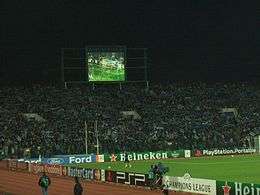
Historically, Levski Sofia fans gathered in the south stand of the stadium. This tradition is believed to have its roots in the Sofia Derby when Levski fans met before the games at the area close to the south end of the Vasil Levski National Stadium. Due to the orientation of the stadium and the naming conventions of stands at most Bulgarian stadiums, Sector B became synonymous with Levski fans. More recently the fans in Sector B are seen as part of the Ultras movement popular in the Balkans. Today Sector B initiates most of the songs, choreography and pyrotechnic displays at Levski games. Levski supporters are organized by fanclubs, most notably the National Supporters Club which helps and coordinates fans from all around Bulgaria and supports the organization of events. There are also notable groups from Sofia (Sofia-West, South Division, Blue Junta, HD Boys, LSL and many more) and other cities across Bulgaria and around the World (such as Ultra Varna, Blue Huns Pernik, OCB Veliko Tarnovo, Torcida Kyustendil, Ultras Vidin, Iron Pazardzhik, Youth Brigade 034 Pazardzik, Blue Warriors Plovdiv, Blue Boys Blagoevgrad, Blue Lads Sliven, Vandals Pleven, Levski Club Dobrich, Ultras Radomir, Ultras Burgas, Levski 1914 Karlovo, Yambol Boys, Levski UK, Levski Chicago and many more) Ultras Levski have a very strong long-standing friendship with SS Lazio fans. According to a study performed for UEFA, Levski is the most popular Bulgarian club and share the sixth position in Europe with Juventus, by percentage of support in its own country (31%). [17]
UEFA & IFFHS rankings
Club coefficientsThis is the current 2019–20 UEFA coefficient:[18]
|
Club world rankingThese are the IFFHS club's points as of 22 January 2019:[19]
|
|
Shirt sponsors and manufacturers
|
Player records
Statistic is correct as of matches played 26 June 2016.
Most appearances for Levski
|
Most goals scored for Levski
|
Managerial history and Notable players
Coaches
|
|
|
Footballers
Bulgarian Footballer of the Year
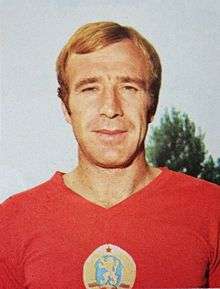
- 1931 –

- 1942 –

- 1948 –

- 1965 –

- 1970 –

- 1974 –

- 1975 –

- 1977 –

- 1984 –

- 1986 –

- 1987 –

- 1999 –

- 2000 –

- 2001 –

A Group top goalscorers
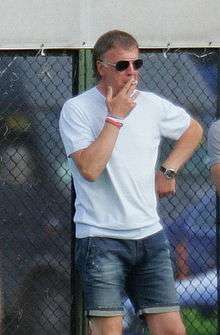
- 1940 –

- 1950 –

- 1957 –

- 1960 –

- 1965 –

- 1974 –

- 1976 –

- 1977 –

- 1979 –

- 1982 –

- 1984 –

- 1987 –

- 1988 –

- 1992 –

- 1993 –

- 1994 –

- 2001 –

- 2003 –

- 2011 –
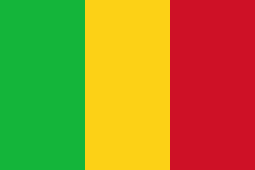
- 2013 –
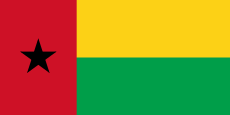
- 2015 –

- 2019 –

References
- "Levski – 94 years of joy, pains and hopes". Levski.bg. Archived from the original on 2009-04-18.
- "Bulgarian Football Union History". Archived from the original on 3 March 2016. Retrieved 4 March 2012.
- "Levski Sofia 5:4 Barcelona". levskisofia.info.
- "Levski-Barcelona 1976 History". uefa.com.
- "Levski make Bulgarian history". Uefa.com. Retrieved 2006-08-23.
- "Levski land to heroes' welcome". Uefa.com. Retrieved 2006-08-24.
- "Levski set to replace CSKA in Champions League". Football24.bg. Retrieved 2008-07-30.
- "Dundalk way out of depth in Sofia". irishtimes.com. July 7, 2010. Retrieved 2010-07-16.
- "Levski Sofia fans humiliate new coach by removing his shirt". BBC Sport. 9 October 2013. Retrieved 2013-10-09.
- "Зрелищен обрат украси празника на вековния Левски! (видео+галерии)". sportal.bg. Retrieved 2014-05-23.
- "Левски стана на 100 години!". sportal.bg. Retrieved 2014-05-24.
- "PFC Levski Club History". pfclevski.eu. Retrieved 6 November 2015.
- "PFC Levski Club History". levskisofia.info. Retrieved 6 November 2015.
- "Bulgaria Cups Overview". rsssf. Retrieved 8 September 2015.
- https://levski.bg/the_club
- "Таксите за "футбол 11" в ДЮШ отпадат, "Левски" налага система 4-3-3" (in Bulgarian). ПФК Левски София. Retrieved July 19, 2019.
- "Concentration of people supporting the most popular club (page 41)" (PDF).
- "UEFA Club Rankings". UEFA.com. 2019-12-13. Retrieved 2020-01-15.
- "Club World Ranking". IFFHS.de. 2019-01-22. Retrieved 2020-01-15.
External links
Official websites
Fan websites
